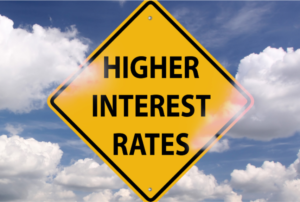
Late Payments – What Really Happens If I Have One?
Making prompt payments on credit cards is one of the most crucial things you can do if you’re trying to rebuild your credit. You can prevent high APRs and make sure your credit score is increasing by paying off your credit card debt each month.
Making your credit card payments on time each month is always in your best interest because a solid credit score is needed to qualify for loans such as an auto loan or a mortgage.
However, what happens if you are unable to make your monthly payment or fail to make a credit card payment? This article will show the consequences of late payments and how they impact your credit.
1. A Late Fee Will Be Charged To You
Your credit card company will charge you a late fee for nonpayment as soon as you miss a payment. This often costs $15 to $35 per month and is assessed if you pay less than the minimum amount due or skip a payment. If you miss multiple payments, the late fee may also go up.
2. Your late payment will accrue interest.
Your late payment and any additional past-due payments on your account will both continue to incur full interest charges. Credit card debt can get out of hand because they frequently have APRs of 20–25% or greater.
3. Your interest rate can increase.

A “penalty” interest rate may be applied by your creditor if your payment is overdue for more than 60 days. The highest permitted rate for your credit card will become your new interest rate.
This increases the time it will take to pay off your balance, which makes it more difficult to hold a large balance and raises the cost of paying off your debt overall. However, after six consecutive months of on-time payments, this penalty will be waived. Depending on the terms of your credit account, you might get your prior APR back if your account is in good standing.
4. Your late payment will be reflected on your credit report.
If your late payments are more than 30 days past due, they will be recorded on your credit report. This entry will be updated every 30 days until it reaches the maximum age of 180 days. Since your account is now “charged-off,” your credit score could be severely harmed.
Your credit will continue to be impacted by this entry for up to seven years. It’s preferable to avoid any missing payments as a result.
5. Your credit score will suffer.

On-time payments account for 35% of your credit score. This indicates that the single biggest thing that can improve or harm your credit score is timely payment of your credit accounts.
Your credit score will decrease if you don’t pay a bill on time. Your previous credit history determines how much your credit will decline. Generally, the higher your credit score, the greater the impact of a late payment on your credit.
The best way to improve your credit score is to make on-time payments!
The consequences of late payments can be severe, it’s best to avoid it altogether. However, we understand that life happens and you may not be unable to pay off your debts or you feel that you just can’t catch up. You don’t have to wait till your lenders start to harass you. You can reach out to us at EmpireOne Credit so we can guide you through debt solution options that will give you peace of mind. Reach out to us today to get a free consultation. Being debt-free feels good!





